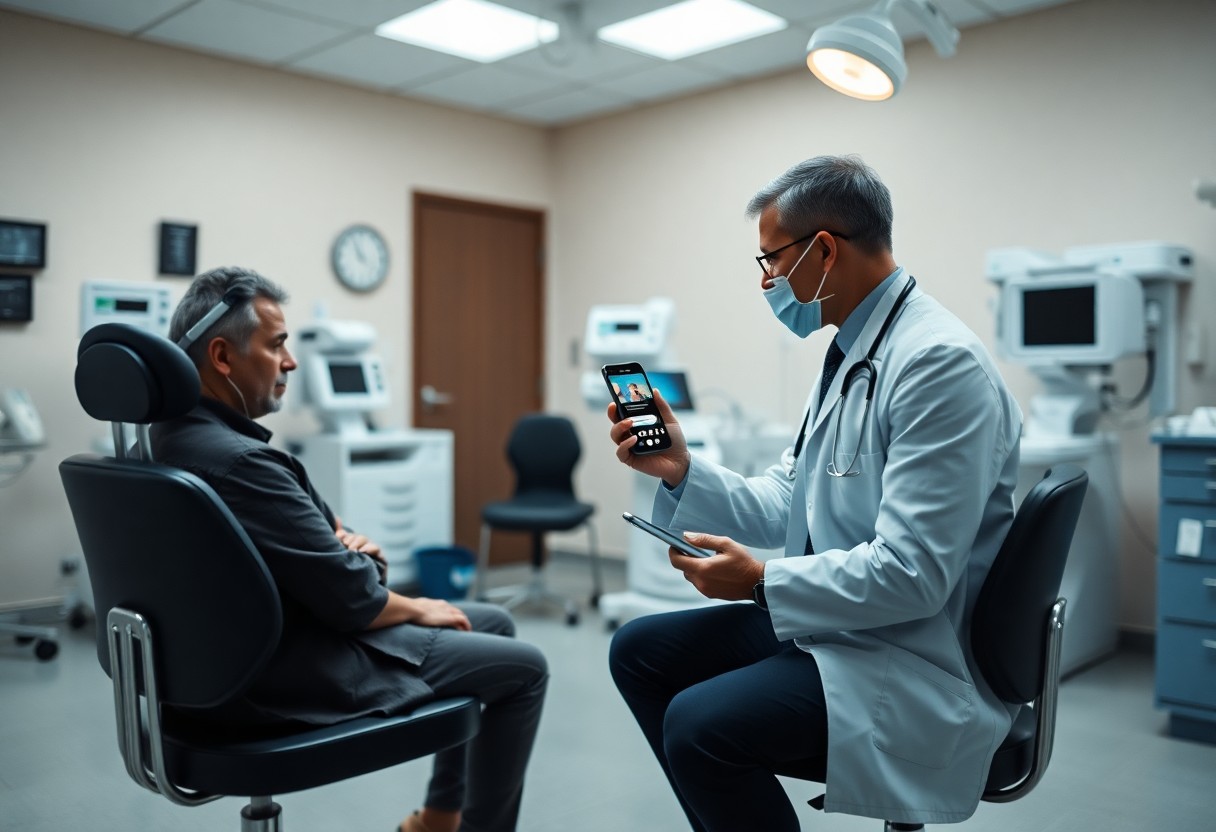Tests that you see promoted by social media influencers can sometimes be unnecessary and even harmful. Many of these direct-to-consumer medical tests lack scientific backing and can lead to overdiagnosis and overtreatment, causing you unnecessary anxiety and pain. It’s important to note that 68 percent of influencers may have financial incentives in promoting these tests, often prioritizing profit over your wellbeing. To make informed decisions about your health, always consult with a qualified medical professional who understands your unique needs.
The Role of Influencers in Promoting Medical Tests
A growing number of social media influencers are promoting direct-to-consumer medical tests, touting their benefits while often overlooking the associated risks. With a staggering 68 percent of influencers financially benefiting from these promotions, you should approach such posts with caution. Many influencers prioritize engagement over factual accuracy, blurring the line between reliable information and marketing tactics.
Financial Incentives for Influencers
Around 68 percent of influencers involved in promoting medical tests have financial interests, such as partnerships or sponsorships. This prevalence raises significant concerns about the objectivity of the information they present. You should be wary of influencers who may exaggerate benefits while downplaying risks, as their primary motivation could be profit rather than your best interests.
Lack of Medical Training
At the same time, many influencers lack the medical training necessary to accurately assess the science behind the tests they promote. This absence of qualifications can lead to the spread of misinformation, ultimately compromising your well-being.
Plus, without the expertise to evaluate medical claims, influencers can inadvertently mislead you about the effectiveness and safety of these tests. Their posts often rely on anecdotal experiences rather than robust scientific evidence, which can result in a misunderstanding of the potential consequences. You could face significant risks, such as overdiagnosis, overtreatment, and unnecessary stress, which undermine your overall health.

Risks Associated with Direct-to-Consumer Medical Tests
While the allure of direct-to-consumer medical tests may be tempting, they often come with significant risks. Many tests lack substantial evidence supporting their benefits for healthy individuals, potentially leading to harmful outcomes like unnecessary medical procedures and strain on the healthcare system. With influencers promoting these tests, it’s vital to approach them with caution and consult your healthcare provider before making any decisions.
Overdiagnosis and Overtreatment
One major concern regarding direct-to-consumer medical tests is the risk of overdiagnosis and overtreatment. These tests can lead to the identification of conditions that may never have caused you harm, resulting in unwarranted procedures and potential complications.
Psychological Impact of False Results
Associated with these tests are the psychological impacts of receiving false results. If a test indicates a health issue that isn’t actually present, you may experience anxiety and fear, leading to unnecessary stress and further testing.
Due to the nature of direct-to-consumer medical tests, the effects of receiving false positive or false negative results can be profound. If you receive a false positive, the worry about potential health issues can affect your mental well-being, causing you to undergo additional tests that may be invasive and painful. Conversely, a false negative could provide a false sense of security, leading you to overlook genuine health concerns. This kind of confusion highlights the importance of consulting with your primary care physician to obtain accurate health assessments.

The Importance of Medical Guidance
Assuming you are considering direct-to-consumer medical tests promoted by influencers, it’s vital to seek proper medical guidance. These tests often lack evidence of benefit for healthy individuals and can lead to significant risks, including overdiagnosis and overtreatment. The best path for managing your well-being is to consult qualified healthcare professionals who can provide insights tailored to your specific medical history and needs.
Consulting Trusted Healthcare Professionals
Any time you encounter medical advice online, consulting trusted healthcare professionals should be your first step. They can help you discern the credibility of information and guide you on what tests or treatments may truly benefit your well-being.
Evaluating Information from Social Media
Among the vast array of health-related content on social media, it’s vital to evaluate the information critically. With many influencers promoting tests for personal gain, you might encounter claims that exaggerate the benefits while downplaying the risks.
Another factor to consider is the potential for misleading narratives that can lead to harm. For example, only 6 percent of influencer posts mentioned the risks of overdiagnosis and overtreatment, which can result in unnecessary anxiety, pain, and further invasive testing. Always approach claims with caution and prioritize dialogue with your healthcare provider to validate any information before making decisions related to your health.
Navigating Misinformation on Social Media
Many individuals find themselves overwhelmed by the sheer volume of health-related content on social media, which can often be misleading. As influencers promote various direct-to-consumer medical tests, you should approach these posts with caution and seek out reliable information sources. Consulting your primary care physician can help clarify the value and safety of such tests, ensuring that your health decisions are well-informed.
Recognizing Hyperbolic Claims
Social media is rife with exaggerated statements about medical tests that may not hold up under scrutiny. Many influencers, driven by financial incentives, tend to emphasize benefits while downplaying associated risks. This often results in a skewed portrayal of what these tests can actually offer, leading you to make decisions based on sensationalized claims rather than solid evidence.
Distinguishing Fact from Fiction
Among the noise of social media, it’s vital to differentiate between factual information and misleading content. Consistently evaluating sources and keeping an eye out for scientific backing are key steps. Influencers often lack the necessary training to accurately convey the science behind medical tests, as seen in the recent study where 68 percent of influencers had financial interests in promoting such products. Engaging with healthcare professionals ensures that you receive accurate and personalized guidance tailored to your specific health needs.
Key Takeaways from Recent Research
Keep in mind that influencer-promoted medical tests often lack evidence for net benefits in healthy individuals and may pose risks. A study reviewed nearly 1,000 posts from social media influencers, revealing that 68% had financial interests in these promotions, while only 6% mentioned important risks like overdiagnosis and overtreatment. It’s imperative to be cautious when evaluating such tests promoted online.
Overview of Study Findings
Findings show that the majority of social media posts promoting direct-to-consumer medical tests are funded by influencer partnerships, leading to exaggerated claims about benefits without appropriate disclaimers about potential harms. This raises concerns about the overall integrity and accuracy of the information provided.
Implications for Consumers
One significant implication of the study is that you should approach influencer promotions of medical tests with skepticism. Understanding that a large proportion of these posts are financially motivated can help you discern the reliability of the information presented.
Consequently, when considering medical tests promoted by influencers, you should prioritize information from trusted sources, such as your primary care physician. The risks associated with these tests, including unnecessary anxiety or pain from false positives and potential danger from overtreatment, underscore the importance of a well-informed decision based on your individual health needs. Always consult with a healthcare professional before pursuing any medical tests to ensure they meet your specific circumstances.
Recommendations for Safe Health Practices
All individuals should prioritize consulting with healthcare professionals before pursuing any medical tests promoted on social media. Engaging with your primary care physician ensures that you receive personalized advice based on your medical history, which can protect you from unnecessary risks associated with direct-to-consumer tests.
Importance of Evidence-Based Medicine
Among the myriad of tests available, it’s vital to understand that many lack substantial evidence supporting their benefits for healthy individuals. Relying on evidence-based medicine helps you avoid potential harms such as overdiagnosis and unnecessary treatments that can lead to more severe issues.
Strategies for Informed Decision-Making
To ensure you make well-informed decisions regarding your medical tests, consider seeking out reliable information from trusted sources. Engaging with your healthcare provider can provide clarity on what tests are appropriate for you, based on your specific circumstances and needs.
Considering the overwhelming amount of misinformation on social media, it’s imperative to actively seek out informed opinions. You should always verify the credibility of the sources of information you encounter. When faced with tests promoted by influencers, ask yourself if they align with evidence-based medicine. Prioritize your well-being by emphasizing consultation with your doctor over influencer recommendations. Direct-to-consumer medical tests can lead to serious risks like false positives and negative results, both of which may result in unnecessary worry and treatment. Your health is your priority—don’t let social media dictate it.
Final Words
The rise of medical tests promoted by influencers may lead you to consider unnecessary and potentially risky procedures. With most influencers benefiting financially from these promotions and often lacking the necessary medical training, it’s important to approach such claims with skepticism. Instead of relying on social media, consult with your healthcare provider to assess what is genuinely relevant for your health and well-being. Protect your health by seeking advice from trusted medical professionals who understand your unique situation.
FAQ
Q: Why are influencer-promoted medical tests considered unnecessary?
A: Influencer-promoted medical tests, such as direct-to-consumer full-body MRI scans or fertility assessments, often lack sufficient evidence showing their benefits for healthy individuals. A recent study highlighted that a significant percentage of influencer posts exaggerate the advantages of these tests while minimizing potential harms. This can lead individuals to pursue unnecessary testing that may not improve their overall health.
Q: What are the potential risks of taking these direct-to-consumer medical tests?
A: The primary risks associated with direct-to-consumer medical tests include overdiagnosis and overtreatment. The study found that only a small fraction of influencer posts mention these significant risks. Individuals may experience unnecessary anxiety or even physical harm from invasive follow-up procedures resulting from false positive or false negative results, which can complicate their health situations.
Q: How can I determine if a medical test is appropriate for me?
A: To assess the appropriateness of a medical test, it’s best to consult with your primary care physician, who is familiar with your unique medical history and circumstances. They can provide insights based on current evidence and guide you in navigating the often misleading information circulating on social media. Engaging with a trusted healthcare provider is key to making informed decisions about your health.


